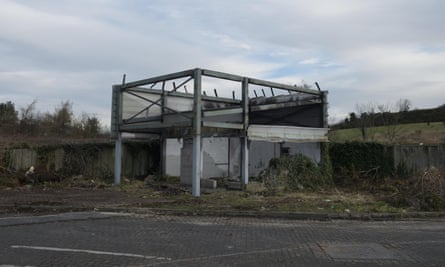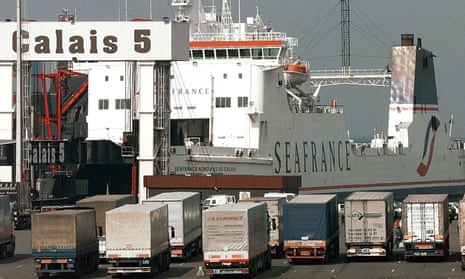The blame game is upon us. Since it is hard to believe that Boris Johnson could be so naive as to think that the European Union will reopen the withdrawal agreement or ditch the Irish backstop, it seems likely that he is actively pursuing a no-deal Brexit. But it is obviously in the prime minister’s interest to be seen as the innocent party, especially in the context of a general election that now seems highly likely.
And so, in his recent letter to Donald Tusk, Johnson wrote: “This government will not put in place infrastructure, checks or controls at the border between Northern Ireland and Ireland.” Few outside the UK take such a claim seriously. If the UK were to follow such a course of action, it would be in breach not only of its World Trade Organization obligation to treat all its trade partners equally but of sundry other international obligations and agreements. The British government’s own Yellowhammer report, which was leaked last week, concluded that attempts to avoid a hard border in Ireland would be “unsustainable”.
Johnson’s claim may be legally dubious but his political intention is clear: if a hard border reappears in Ireland this will be the fault of an unreasonable EU. This is an oft-repeated refrain among Brexiters and Ireland’s tiny band of Eurosceptics, anxious to find a reason to dislike the EU in a country where the organisation is overwhelmingly popular.
The argument gets more traction than it deserves because of a confusion about borders. In particular, there seems to be a common assumption that the absence of checks on goods crossing frontiers is the default state of the world and that the existence of border controls is a weird aberration.
The assumption is false. As even a cursory glance at border arrangements across the globe reveals, border controls are entirely normal: it is their absence that is the aberration. Physical borders are to be found even along those frontiers that have been pointed out by Brexiters as examples to follow, most notably those between Norway and Sweden, Canada and the United States, and Switzerland and France.
The only region of the world where you will find sovereign states coexisting without border checks on the trade between them is the EU. There is nothing accidental about this, since eliminating borders was the great project of the EU. It did so by eliminating the reasons why modern states find it necessary to inspect goods crossing international frontiers: in particular, different tariffs on imports from the rest of the world, implying an incentive for criminals to smuggle goods from countries where tariffs are low to countries where they are high; and different rules on what can be legally bought and sold, implying an incentive for criminals to smuggle goods from countries where they can be legally sold to countries where they are prohibited.
The first reason for border controls was eliminated by the simple expedient of setting up a customs union, which dates back to the foundation of the old EEC and involves all member states having a common trade policy vis-a-vis third countries. And the second was eliminated by ensuring that the rules governing what can be legally bought and sold are the same across the EU: this is the single market, which as you will recall was a largely British invention. When it came into effect in 1993, border controls on trade vanished across Europe.
The combination of the customs union and single market remains to this day the only way that border controls on trade between sovereign states have been eliminated. It was an astonishing political achievement. It has been so successful that many Europeans now take a borderless Europe for granted and find it hard to imagine a world in which lorries crossing frontiers face time-consuming and expensive delays.
Those taking it for granted include, it would appear, many Brexiters. And so they argue that the UK should be able to do whatever it wants on trade and regulation without this having implications for borders; that the UK will never introduce a border with Ireland; that if UK decisions lead to borders, this will be because the EU “chooses” to “reintroduce” them; that the EU, not the UK, will be to blame.

Such claims might be valid if we lived in a world where the absence of border controls was the normal state of affairs. Since we don’t live in such a world, they are a logical nonsense and will remain so until someone finds an alternative way of eliminating border controls on trade while preventing smuggling. The latter consideration is particularly important given that we also live in a world in which legitimate traders and governments will not accept losing business and tax revenue as a result of the illegal activities of organised criminals. To date, there is no indication that such an alternative method exists.
If, therefore, a country chooses to abandon the customs union and single market arrangements that allowed borders to be eliminated in the first place, then border controls will return as an automatic consequence of that country’s choices. Its choices and no one else’s – it really is as simple as that.
However, that will not stop many in the UK claiming that the backstop, which de facto keeps Northern Ireland in the customs union and single market for goods, is not required to avoid a hard border in Ireland; that in a no-deal scenario you wouldn’t need one anyway; that if there are checks on UK goods at Calais this will constitute “punishment” by the EU; and so forth. While many making such claims are just being dishonest, there are probably others who are genuinely confused. And one reason for that is that they’ve so internalised the EU’s greatest success that they assume it is the natural state of affairs.
Which is wrong and also a bit ironic.
